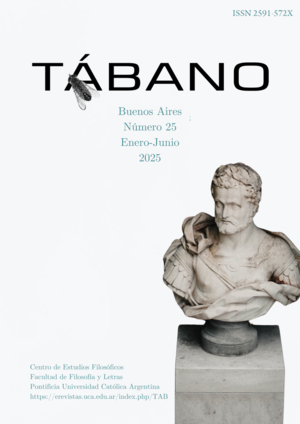Knowing Singular Plural. University, Humanities, and the Interdisciplinary Nature of Knowledge
DOI:
https://doi.org/10.46553/tab.25.2025.e12Keywords:
University, Interdisciplinarity, Humanities, Plurality, System of KnowledgeAbstract
University is the place where every discipline is acknowledged as a participant in the process of knowledge. Its “border” nature, however, makes the University a conflictive territory in between national economic and political interests and its calling to a universal search for truth. This conflict expresses itself in the double purpose of preparing professionals for the job market and of preparing the grounds for a system of knowledge. However, since University depends on economic and political interests, the logic of division of labor is transposed into the space of knowledge and produces a disciplinary specialization that loses any possibility of a system of knowledge. Interdisciplinary work is seen today as a way to heal this fracture within science, in the supposition that interdisciplinarity is something to be gained. However, in this essay, I argue that interdisciplinarity is the very nature of every discipline. Disciplines are not closed and self-sufficient totalities, but the result of an interaction between all discourses. The notion of singular plural knowledge expresses this relational nature of knowledge. Humanities help to stress this common belonging of every discourse in a number of ways: they root every discourse in the lived human experience, they also emphasize the symbolic articulation of every discipline, and, finally, they make it clear that every knowledge has a pragmatic motivation. In this way, they also invite every discourse to acknowledge itself as a contingent expression within a certain historical system of knowledge. University should, then, be seen as cenobium, a space in which all disciplines are congregated, and where the relational life of discourses can flourish.
Downloads
Downloads
Published
How to Cite
Issue
Section
License
Copyright (c) 2025 Martín Grassi

This work is licensed under a Creative Commons Attribution-NonCommercial-ShareAlike 4.0 International License.


